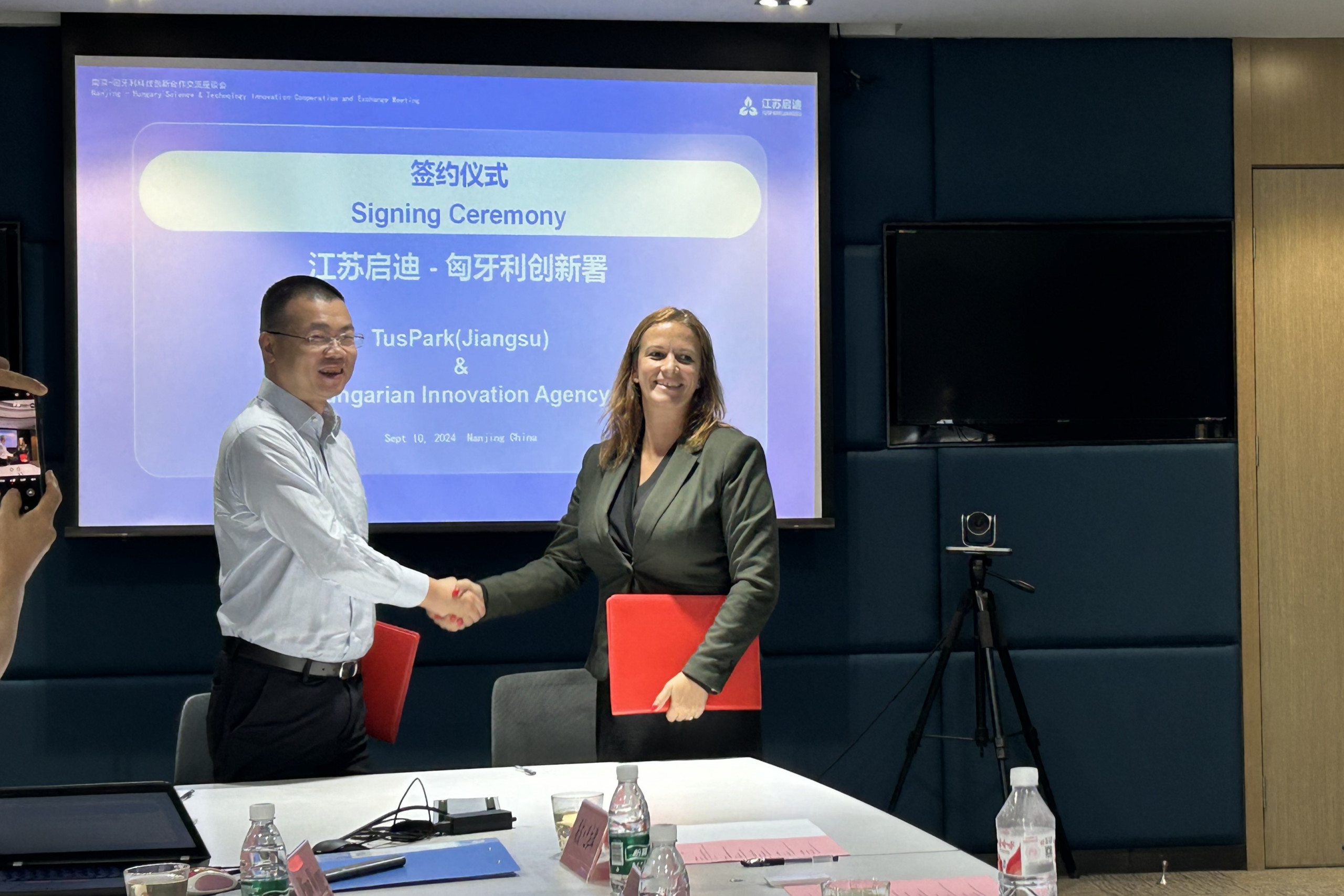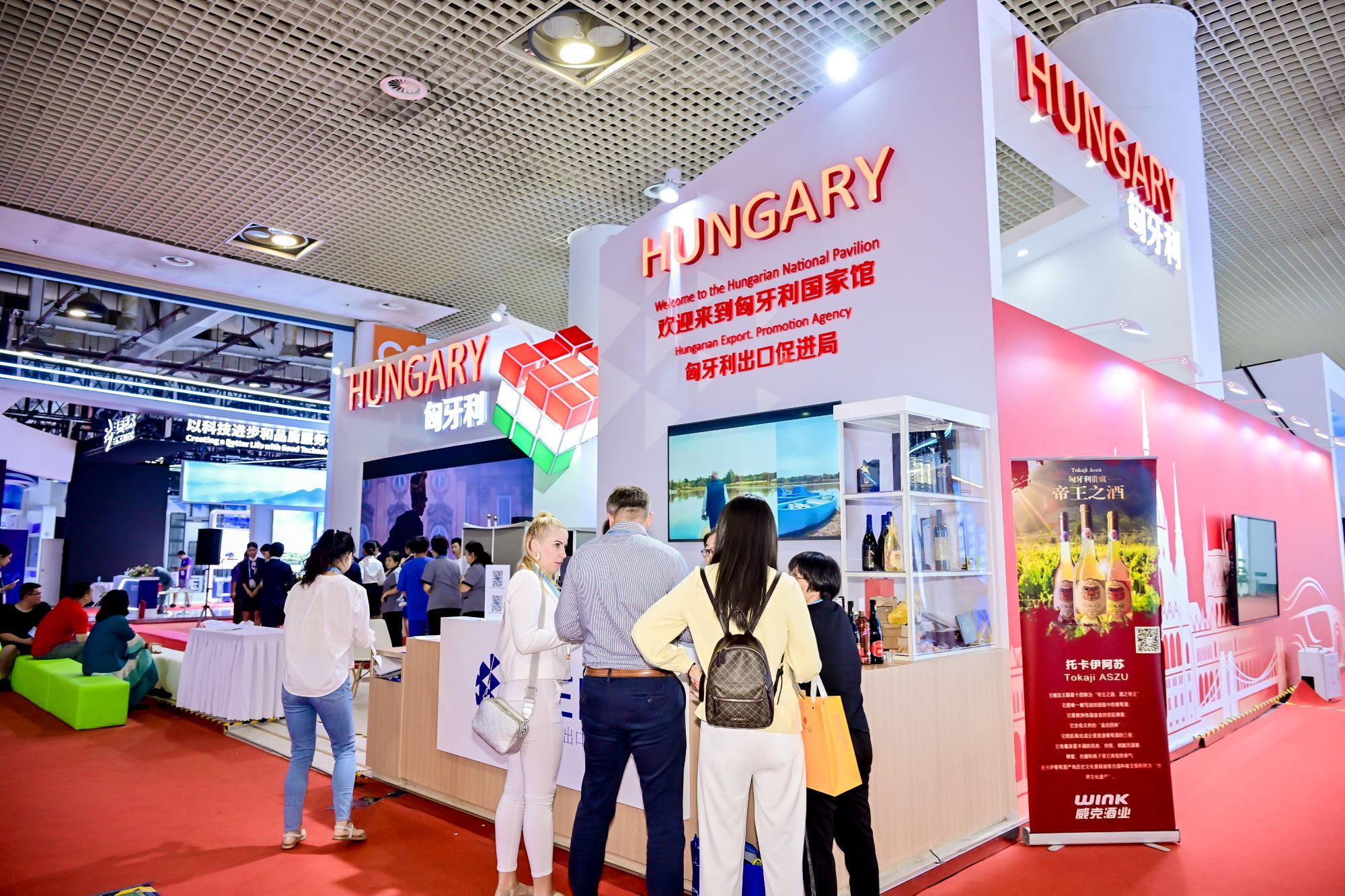The Hungarian innovation ecosystem was presented in China with the support and active participation of the Hungarian Innovation Agency (NIÜ). At the events in Shanghai, Hangzhou, Nanjing and Xiamen, collaborations were launched with several Hungarian universities, investors and enterprises, strengthening economic cooperation between the two countries.
10 billion Chinese yuan (nearly 505 billion forints) of investor wealth was turned over at the Pujiang Innovation Forum, which was attended by nearly 400 academics from more than 40 exhibiting countries and over 50 nations, and more than 11,000 visitors from 7-10 September. This year's Guest of Honour at the Shanghai Forum was Hungary on the 75th anniversary of China-Hungarian diplomatic relations.
Our country has set itself 3 important goals with this journey. Firstly, to create more research and innovation cooperation between Hungarian and Chinese universities and research institutes, secondly, to enable more Hungarian start-ups and innovative companies to gain a foothold in the world's largest market of 1.4 billion, and thirdly, to enable Chinese companies to establish research and development centres in Hungary, creating high added value jobs.
The Hungarian delegation of around 40 people, led by László Bódis, Deputy State Secretary for Innovation of the Ministry of Culture and Innovation and CEO of the NIÜ, consisted of policy makers, scientists, business and academic leaders. They were received by the Mayor of Shanghai, China's largest industrial city with a population of about 25 million, Gong Zheng; the Vice-Minister of the Chinese Ministry of Science and Technology (MOST), Jia Chang Chen, and several organisations and companies interested in science, technology and innovation, who also discussed the opportunities for Hungarian businesses in China.
Negotiations are already outlining concrete cooperation opportunities with a number of partners. For example, agreements have been reached with the Deputy Minister of MOST to set up joint laboratories, joint mobility and R&D programmes. In addition, the NIÜ has invited the heads of the China Research Centre for Innovation Cooperation in Central and Eastern Europe and the Zhejang Provincial Science and Technology Cooperation Centre for Science and Technology to visit the country for further discussions. With the assistance of the NIÜ Directorate of Knowledge Exploitation, a cooperation agreement was reached with the TusPark Innovation Research Institute of Tsinghua University in Nanjing, China's leading higher education institution, to develop their innovation activities together with the Hungarians in the future.

The representatives of the NIÜ together with representatives of several Hungarian universities gave presentations, shared their experiences on Hungarian technology transfer processes in panel discussions and gained important knowledge on the functioning of successful university innovation ecosystems.
Hungary was the guest of honour at PIF and organised its own sub-forum (with the active participation of the NIÜ Directorate for External Markets), focusing on healthy living, Hungarian medical and health research and innovation. Two matchmaking events of great interest were also held in China. Hungarian universities, university TTCs, venture capitalists and companies presented themselves at the Forum, identifying areas where they are looking for Chinese cooperation partners. The other event, in Hangzhou, also featured universities and companies. A cooperation agreement was also signed, under which the Chinese side plans to set up a talent and innovation centre in Budapest.

In addition to the above, 15 Hungarian companies (food, telecommunications, engineering services, logistics, healthcare, medical technology, automotive) exhibited at the China International Investment and Trade Fair (CIFIT) in Xiamen from 8-11 September, with the help of the NIÜ's XPAND foreign market entry support programme and HEPA Hungarian Export Promotion Agency. CIFIT is an event focusing on "nationality" and "internationality", investment promotion, the coordinated development of national and regional economies, and the strengthening of economic and trade ties across the Taiwan Strait. This provided a good platform for Hungarian companies to enter the Far East markets, as they also gained new partners and customers at the event.




